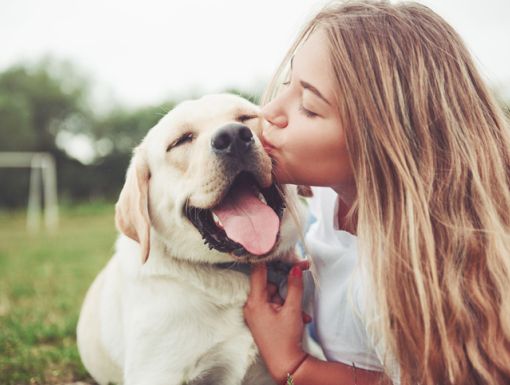
Dogs That Are Hypoallergenic
Dogs are the most popular pets in the United States, with almost 50 million households owning at least one dog. Folks love spoiling their pooches, and the global market for pet accessories is projected to reach $41.1 billion by 2025. Researchers speculate that one reason for the boom in pet ownership is that dogs can fill a void for empty nesters as well as young couples who choose not to have children.
But while many of us love dogs, allergies can spoil the fun. In the United States, as many as three in 10 people with allergies have allergic reactions to cats and dogs. Cat allergies are about twice as common as allergies to dogs.
Some people may be allergic to all dogs. Some people may be more sensitive to certain breeds of dogs than others. Does that mean some dogs are hypoallergenic?
Which dogs are hypoallergenic?
Unfortunately, a 100% non-allergic dog (or cat) does not exist. While you may think it's the fur that causes the allergic reactions, it's actually an animal's urine, saliva or dander (tiny bits of dead skin) that can cause the problems. Urine, saliva and dander can stick to the fur, but it's not the hair itself that causes the allergic reaction. As your dog travels around your home and sheds fur, it deposits all those bits of allergens around your house.
People with allergies have immune systems that go into overdrive when confronted with allergens, like the ones we just mentioned. Normally, our immune system protects us from dangerous diseases. But the immune system of allergic people reacts to harmless proteins found in allergens.
Reactions to dog allergens can range from wheezing to coughing and in some cases, intense rashes on any part of the body.
So, while there is no truly hypoallergenic dog, there are some breeds that might cause allergic people fewer and less severe reactions. That is because these breeds have coats that do not shed, and therefore are less likely to distribute tiny bits of dander, urine and saliva around your home. But keep in mind, these breeds still carry allergens, just like their canine friends who shed fur. And if a dog licks himself and then licks you, he can deposit these allergens on your skin.
Interestingly, some people are only sensitive to a protein produced by male dogs. Up to 30 percent of people allergic to this protein may be able to tolerate a female dog or a male that has been neutered. This is one reason why getting tested for allergens to pinpoint what you're allergic to is important.
* Afghan hound
* American hairless terrier
* Bedlington terrier
* Bichon Frise
* Chinese crested
* Coton de Tulear
* Giant Schnauzer
* Havanese
* Irish water spaniel
* Kerry blue terrier
* Komondor
* Lagotto Romagnolo
* Maltese
* Miniature schnauzer
* Peruvian Inca Orchid
* Poodle
* Portuguese water dog
* Puli
* Shih Tzu
* Soft coated Wheaten terrier
* Spanish water dog
* Standard schnauzer
* Xoloitzcuintli
* Yorkshire terrier
What else can you do if you have dog allergies?
If you're allergic to dogs, in addition to selecting a breed that is less likely to cause problems, there are other steps you can take to reduce your symptoms.
* Keep your dog off your bed and out of your bedroom. We know it's hard, but you'll breathe easier at night.
* While you're at it, keep your dog off your couch and other furniture, too.
* Carpet is not your friend. Tile and wood floors are less likely to collect allergens.
* Consider choosing a smaller dog, which obviously will produce a smaller amount of allergens.
* Vacuum floors and furniture frequently. Choose a vacuum equipped with a high-efficiency particulate air (HEPA) filter.
* Wash your dog's bed frequently.
* Have your dog groomed frequently. If you do it yourself at home, consider brushing the dog outside.
* Discuss your symptoms with an allergist. Your doctor may recommend immunotherapy, in which you receive shots over a period of time to build a tolerance to dogs.
Learn more about Jo S. Reed, MD


